United States
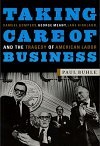
The first comprehensive history of American labor leadership in the twentieth century, this is a tale of tremendous hope and appalling treachery, stunning accomplishment and dramatic defeat. | more…

Written with droll wit and lyrical elegance, this visionary book challenges the chorus of resignation—the notion that there is no alternative, that profit is the best relationship between people, and that the market guarantees democracy. Daniel Singer insists that a more free and egalitarian society can be won, and he predicts that the new millennium will be an age of confrontation, not consensus, with Western Europe as a probable first battlefield. | more…
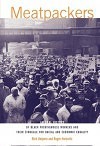
Available for the first time in paperback, Meatpackers provides an important window into race and racism in the American workplace. In their own words, male and female packinghouse workers in the Midwest—mostly African-American—talk of their experiences on the shop floor and picket lines. They tell of their fight between the 1930s and 1960s for economic advancement and racial equality. In cities like Chicago, Kansas City, Omaha, Fort Worth, and Waterloo, Iowa, meatpackers built a union that would defend their interests as workers—and their civil rights. | more…
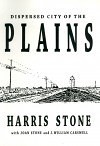
Town-building in the Great Plains gets a fresh examination in Harris Stone’s final book. Form and consequences of the inhabitation of the plains landscape are explored, from the rural roads and farms to industrial parks. Beautifully hand-lettered and illustrated throughout, this thought-provoking work will appeal to architects, planners, historians, cultural geographers, and anyone interested in the interplay between people and vernacular form. | more…

In my opinion, American capitalism no longer has any use for, let’s say, 40 percent of the population. These are the descendants of folks who were brought over here in one way or another during the period of capital accumulation. They’re now superfluous human beings. | more…
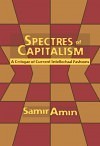
Samir Amin, one of the most influential economists today, has produced another groundbreaking work. Spectres of Capitalism cuts through the current intellectual fashions that assume a global capitalist triumph, taking the occasion of the 150th anniversary of Marx and Engels’s classic tract, the Communist Manifesto, to focus upon the aspirations of the destitute millions of the post-Cold War era. | more…
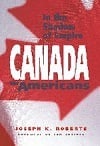
In the Shadow of Empire: Canada for Americans invites Americans to take a closer look at their neighbor to the north, challenging the commonly held view that Canada is just like the United States. American-born but a longtime resident of Canada, Joseph K. Roberts brings into focus every major feature of Canada’s politics, from the distinctiveness of a society that does not stigmatize government action to the struggles of indigenous peoples and the quest of French-speaking Quebec for autonomy. | more…
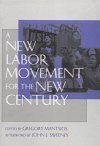
“Labor has finally awakened from a long, deep sleep.” So declared one observer after the victory of John J. Sweeney’s “New Voice” slate in the 1995 contest for leadership of the U.S. trade union federation, the AFL-CIO. Sweeney’s team promised to make organizing its top priority, and new stirrings in labor have brought unprecedented media attention. With a surprisingly popular and victorious nationwide strike at United Parcel Service in 1997, hopes have risen for a new labor movement. | more…
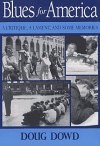
Blues for America combines an historical critique of the “American Century” with journalistic reports and personal anecdotes. Doug Dowd, an economics professor and long-time troublemaker, traces the socioeconomic history of our country decade by decade in a style reminiscent of Dos Passos’ U.S.A. Blues for America is an engrossing read, filled with incisive observations and biting humor. | more…

Over the last few years, I have asked hundreds of college students, “When was the country we now know as the United States first settled?” | more…
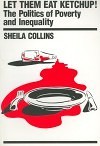
Let Them Eat Ketchup! — the title comes from a Reagan administration decision to classify ketchup as a vegetable in federal school lunch programs — explains: how governments define and measure poverty, how and why official definitions of poverty fall short, and the failure to deal with the real suffering and inequality in our “class-free” society. | more…
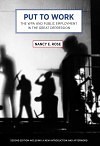
With unemployment surging to record levels and the economy in freefall, experts are looking to the Great Depression for lessons in stimulating job creation. Then, as now, the system was unable to provide the jobs and financial support desperately needed by millions of people. But then—in the 1930s—the state intervened to create massive employment programs that put people to work on socially useful projects in states, cities, and towns across the country. The scope of these programs was unprecedented and never repeated in the decades that followed. Today, as the severity of the economic crisis increasingly resembles that of the Great Depression, the time for a reappraisal of the New Deal employment programs has never been more necessary. | more…











